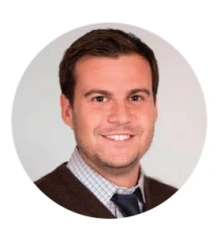
Brandon Minzer, MD, EdM, MA
Clinical Specialty Advisor
Brandon Minzer, MD, EdM, MA
Anesthesiologist, Banner University Medical Center - Phoenix
Assistant Clinical Professor, Anesthesiology
Note: You must be a current student with an active account to access Dr. Minzer's profile.
Specialty-specific details are being updated; please check back shortly.
Specialty-specific details are being updated; please check back shortly.
Specialty-specific details are being updated; please check back shortly.
Specialty-specific details are being updated; please check back shortly.
Program Information Specific to Anesthesiology
Anesthesiology requires four years of postgraduate training. Some programs are Categorical, spanning PGY-1 to PGY-4, with an integrated Internship year. Others require a separate PGY-1 year and are considered Advanced Match, as graduating fourth-year medical students match into a separate internship program, as well as their PGY-2 through PGY-4 Anesthesia program, at the same time. Occasionally, programs may offer a position to Interns currently in their internship, looking to start an Anesthesia Residency the upcoming year, designated as an “R” position. The American Board of Anesthesiology accepts any clinical base year as a PGY-1. Many Anesthesiologists choose between a medical and a surgical intern year. Transitional Year programs are another popular option for internships, as they offer a broad view of various clinical exposures and rotations.
Update for Academic Year 25-26
Coming soon!
- Note: You must be a current student with an active account to access
Anesthesiology Student Interest Group
Click here to visit the Anesthesiology Interest Group website
Anesthesiology Newsletter
Additional Resources
Learn more about the American Society of Anesthesiology
Check out the American Society of Anesthesiology Guide to a Career in Anesthesiology
Review the Society for Education in Anesthesiology website

